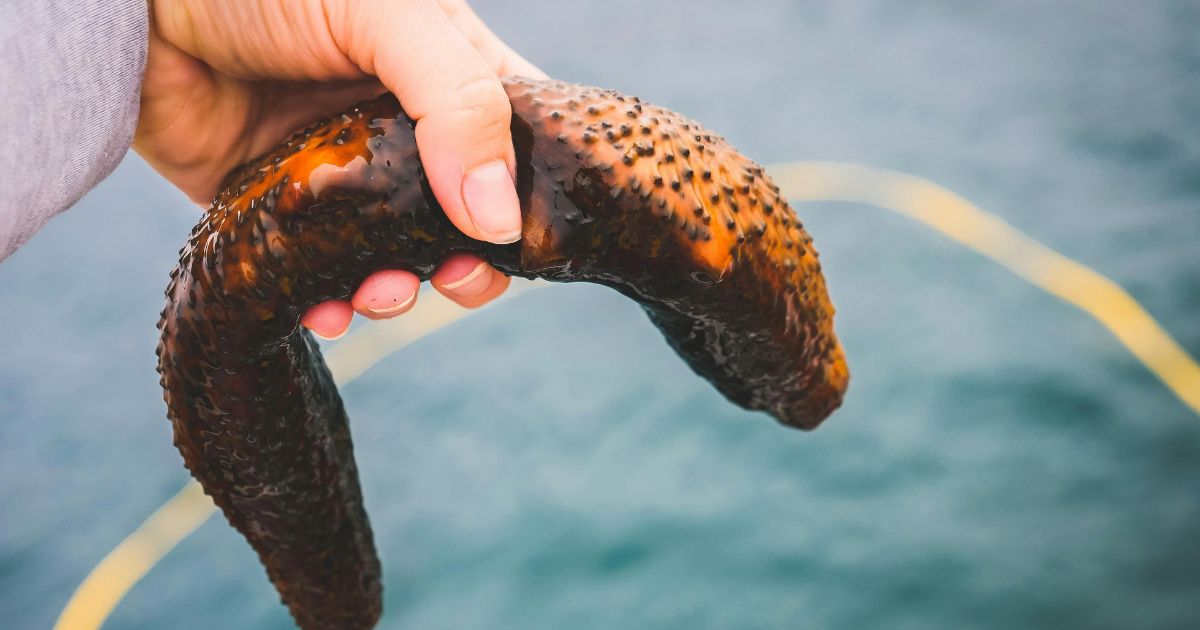MARE studies alternative to stop sea cucumber extinction
Still fairly unknown, sea cucumbers play a fundamental role in marine ecosystems - they are largely responsible for the health of the ocean floor and all the species that live there. And while excessive demand in the Indian and Pacific Oceans, as a result of Asian cuisine and culture, has led to an alarming decline in the number of specimens, this problem is now beginning to affect the Mediterranean and Atlantic Oceans. In Portugal, sea cucumbers are already being illegally caught for export - in order to stop deregulation and the threat of extinction, MARE has begun a study to find alternatives to fishing.
In Portugal, sea cucumbers are being caught illegally and consequently exported without regulation. In order to curb this behavior and make their marketing safe, it is essential to develop an alternative to fishing. MARE - Centro de Ciências do Mar e do Ambiente (Center for Marine and Environmental Sciences) has recently started a line of research with the aim of developing knowledge that will allow options such as aquaculture to be used.
"Through these studies we have learned about the reproductive cycle, habitat preferences and demographic structure of these populations. We also realized that this is not only a valuable resource, but also a superfood, low in lipids and carbohydrates, rich in protein and bioactive compounds with anti-inflammatory and anti-oxidant properties," explains Pedro Félix, the study's coordinator. "However, as a resource, we can't promote it without a sustainable way of supplying markets, for which demand is already growing in Asia. The production of sea cucumbers is a challenge made up of several stages in which MARE has gained ground. At the moment, not only are we breeding them in captivity, but we are also working to optimize their growth, improving feeding and zootechnical conditions, and we are at the forefront of research groups working in this area globally, with emerging species (recently introduced to the market)," he continues.

MARE Sea Cucumber's research team is now working on the commercial implementation of the integrated multi-trophic cultivation model (IMTA), a method that reduces production costs and, consequently, sales costs, thus marketing a quality, safe and certified product.
"Traditional production methods have a high impact on the environment. The by-products of monocultures are an element of environmental pressure with significant consequences, especially in estuaries and coastal lagoons. Since sea cucumbers are detritivores, i.e. they feed on the organic matter in the sediment they ingest on the seabed, they are able to occupy a niche in aquaculture systems where all the organic matter retained in these systems is made available to them," explains Pedro Félix.
In this way, sea cucumbers are produced at no cost for their food and improve the conditions of the cultivation tanks, reducing or, in the extreme, helping to prevent these organic compounds from leaking into the surrounding environment. "If we add other organisms to these groups, such as filter-feeding bivalves that remove organic material from the water column, and algae that remove excess nutrients released by the other organisms, we can achieve circular production, with low production costs and a reduced impact on the environment. We are working on this and hope to implement this model soon," concludes the researcher.
Opting for aquaculture thus has a double benefit: it promotes sustainability in consumption (thanks to artificial reproduction it is possible to guarantee that the species caught do not come from wild populations) while protecting the environment, preventing sea cucumbers from disappearing from the seabed, where they also contribute to preventing the acidification of the oceans.
